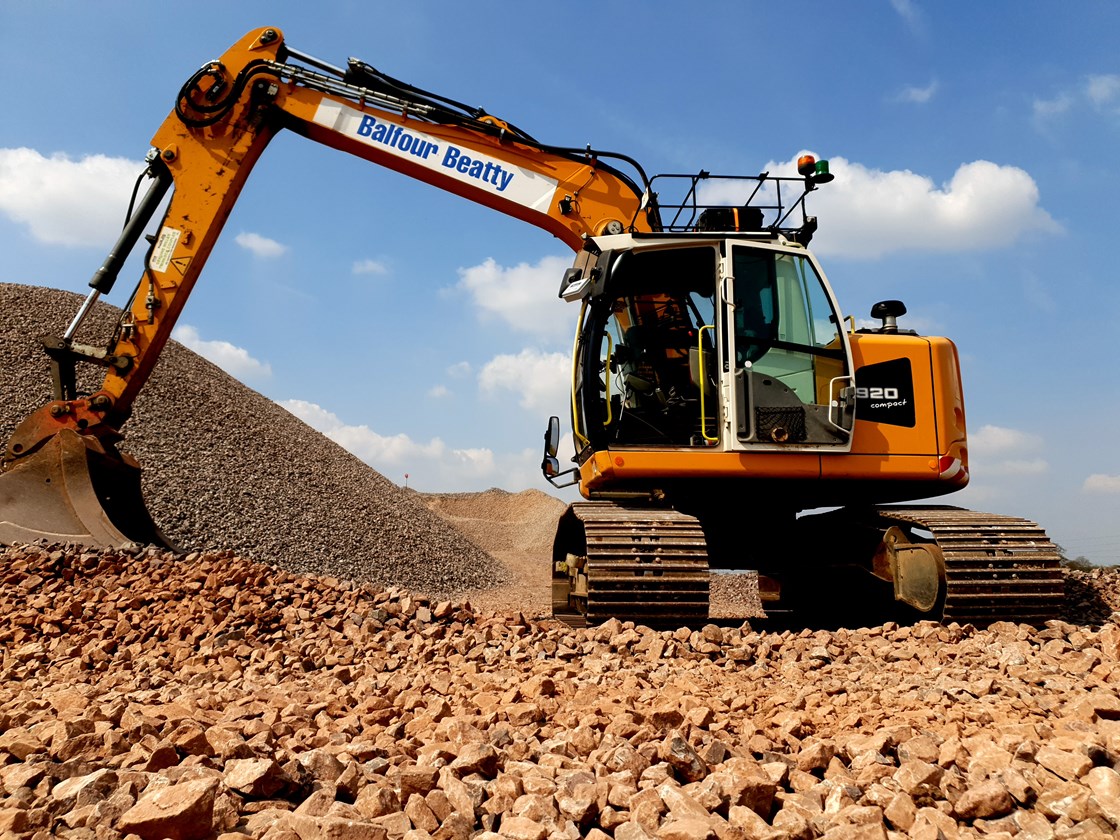Liebherr R920 compact excavator
Credit: HS2 Ltd
Results from a trial carried out to test the potential air quality benefits of alternative fuels look set to help HS2’s push to cut the use of diesel and introduce low-carbon solutions on construction sites.
The trial, carried out in partnership with Imperial College London and Balfour Beatty VINCI (BBV) at an HS2 construction site near Coventry in April 2021, measured tail-pipe emissions to determine the potential emission benefits of using alternative fuels when compared to red diesel.
The ‘real-world’ emission measurements tests were carried out on two 20-tonne excavators - a Liebherr R920 compact excavator (Stage IIIB) and a Komatsu PC210 excavator (Stage IV). The fuels tested included standard red diesel (EN590) to provide a baseline for comparative purposes, red diesel with F18 fuel additive and two biofuels - hydrogenated vegetable oil (HVO) and Enhanced HVO.
Download - Liebherr R920 compact excavator.jpg
